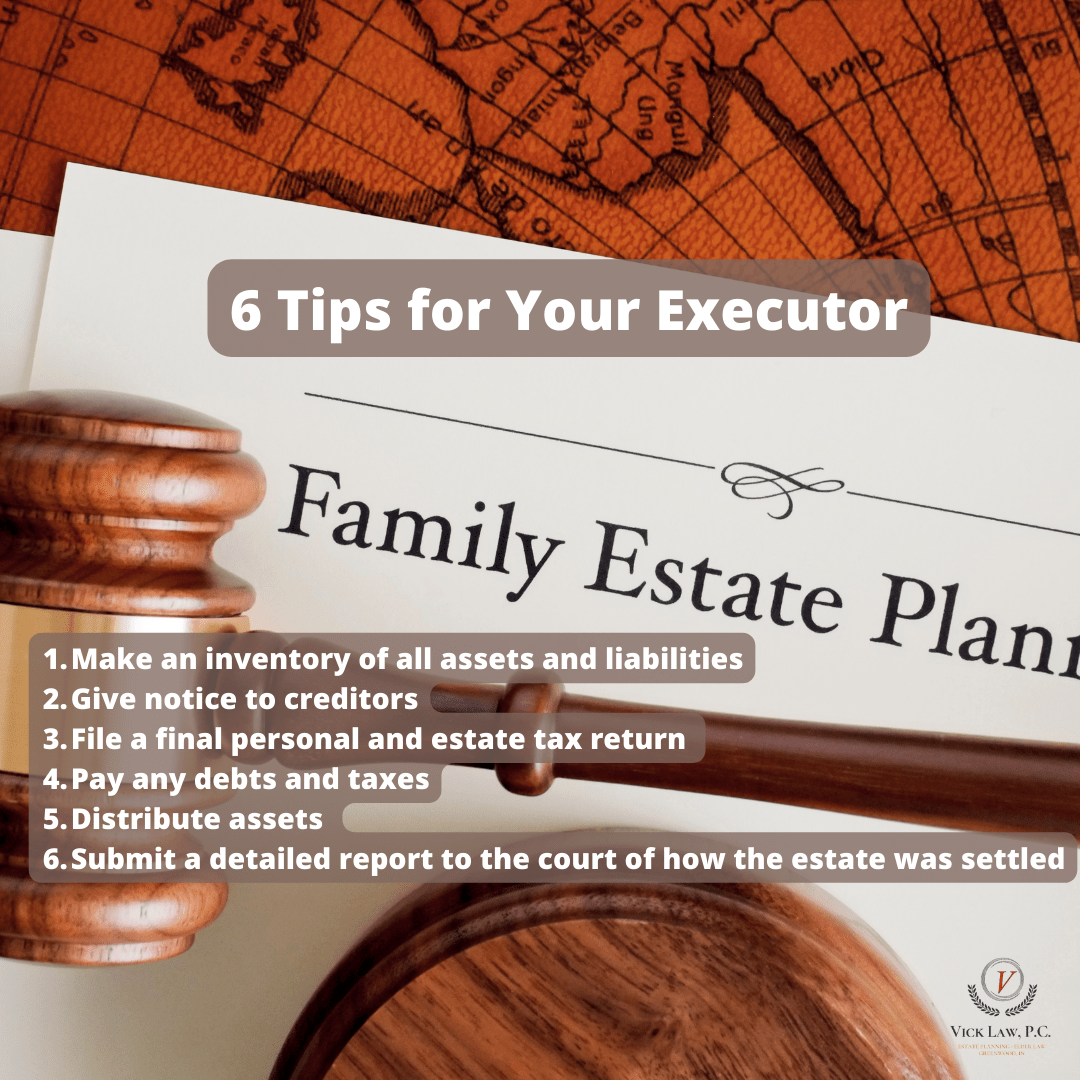While the executor is usually a spouse or close family member, you can name anyone you wish to be your executor. A bank, estate planning attorney, or professional trustee at a trust company may also serve as the executor, according to a recent article from Twin Cities-Pioneer Press titled “Your Money: What you need to know about naming an executor.”
Regardless of who you select, the person has a legal duty to be honest, impartial, financially responsible and to put your interests ahead of their own. This person and one or two backup candidates should be named in your will, just in case the primary executor declines or is unable to serve.
How does someone become an executor? When your will is entered into probate, the court checks to be sure the person you name meets all of your state’s legal requirements. Once the court approves (and usually the court does), then their role is official and you executor can get to work.
The executor has many responsibilities. You can help your executor do a better job by making sure that financial and personal business documents are organized and readily available. Here are some, but not all, of the executor’s tasks:
- Making an inventory of all assets and liabilities
- Giving notice to creditors: credit card companies, banks, mortgage companies, etc.
- Filing a final personal tax return and filing the estate tax return
- Paying any debts and taxes
- Distributing assets according to the directions in the will and in compliance with state law
- Preparing and submitting a detailed report to the court of how the estate was settled
If there is no will, or if no executor is named in the will, or if the executor can’t serve, the court will appoint a professional administrator to settle your estate. It won’t be someone you know. Your family may not like all of the decisions made on your behalf, but there won’t be any options available.
Does an executor get paid? A family member may or may not wish to be paid. However, given how much time it takes to settle an estate, you might feel it’s fair for them to be compensated. The amount varies depending on where you live, but you can leave the person between 1% to 8% of your total estate. A professional administrator will likely cost considerably more.
How do you document your estate to help out the executor? If you think this task is too onerous, imagine how a family member will feel if they have to conduct a scavenger hunt to identify assets and debts. If a professional administrator ends up doing this work, it will take a bigger bite out of your estate and leave loved ones with a smaller inheritance.
Start by making a list of all of your assets and liabilities, plus a list of all advisors who help with the business side of your life. Recent tax returns will be helpful, as will contact information for your estate planning attorney, CPA and financial advisor. You should include retirement accounts, life insurance policies and any assets without beneficiary designations.
Are you in the Greenwood or Indianapolis area? Book a free consultation with Vick Law, P.C. today to create or update your estate plan with a new executor.
Reference: Twin Cities-Pioneer Press (June 25, 2022) “Your Money: What you need to know about naming an executor”

